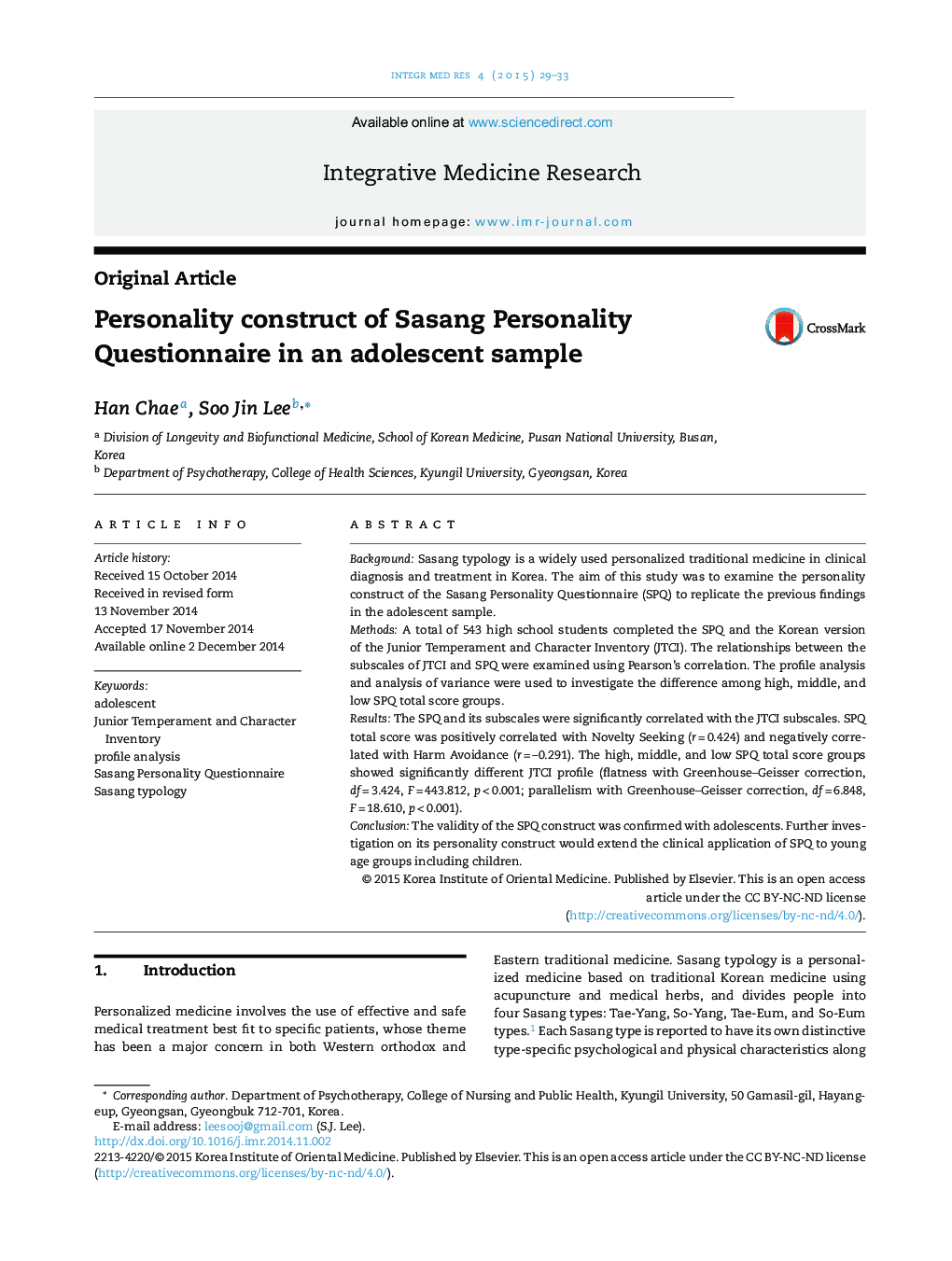| Article ID | Journal | Published Year | Pages | File Type |
|---|---|---|---|---|
| 3098269 | Integrative Medicine Research | 2015 | 5 Pages |
BackgroundSasang typology is a widely used personalized traditional medicine in clinical diagnosis and treatment in Korea. The aim of this study was to examine the personality construct of the Sasang Personality Questionnaire (SPQ) to replicate the previous findings in the adolescent sample.MethodsA total of 543 high school students completed the SPQ and the Korean version of the Junior Temperament and Character Inventory (JTCI). The relationships between the subscales of JTCI and SPQ were examined using Pearson's correlation. The profile analysis and analysis of variance were used to investigate the difference among high, middle, and low SPQ total score groups.ResultsThe SPQ and its subscales were significantly correlated with the JTCI subscales. SPQ total score was positively correlated with Novelty Seeking (r = 0.424) and negatively correlated with Harm Avoidance (r = –0.291). The high, middle, and low SPQ total score groups showed significantly different JTCI profile (flatness with Greenhouse–Geisser correction, df = 3.424, F = 443.812, p < 0.001; parallelism with Greenhouse–Geisser correction, df = 6.848, F = 18.610, p < 0.001).ConclusionThe validity of the SPQ construct was confirmed with adolescents. Further investigation on its personality construct would extend the clinical application of SPQ to young age groups including children.
